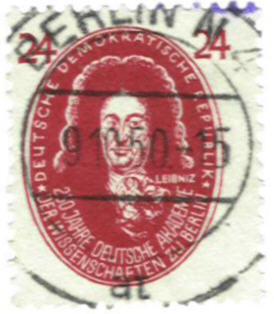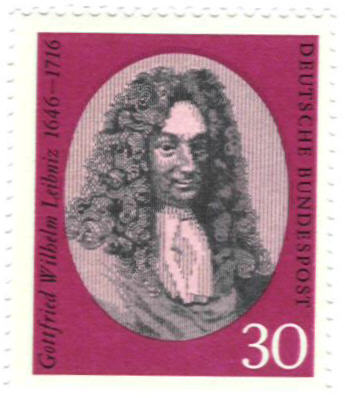Gottfried Wilhelm Leibniz
(1646-1716)
Gottfried Wilhelm Leibniz
(1646-1716)
German Democratic Republic
(1950), No. 66
German Federal Republic
(1926), No. 360
Gottfried Wilhelm Leibniz
(1646-1716)
Gottfried Wilhelm Leibniz
(1646-1716)
German Federal Republic
(1966), No. 962
German Federal Republic
(1980), No. 1329



